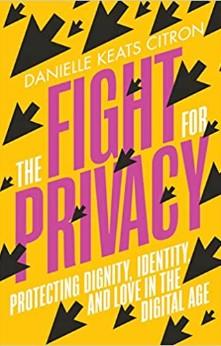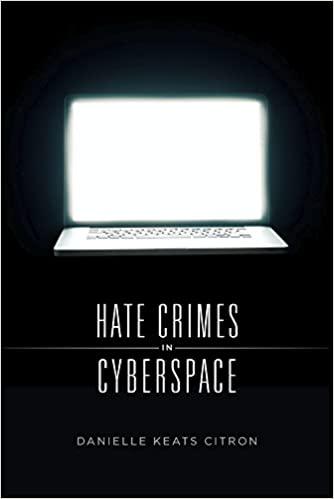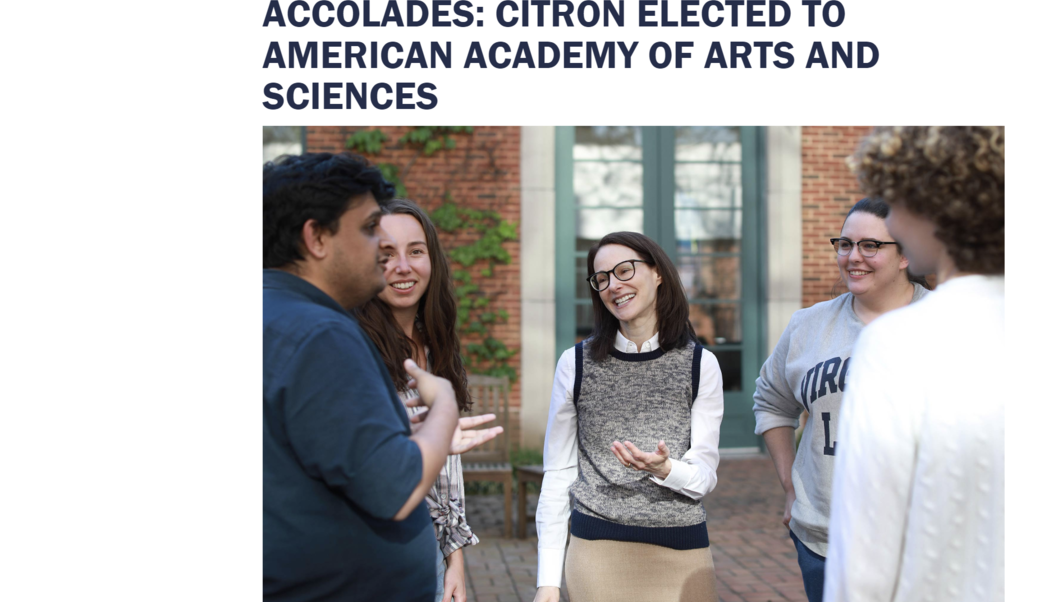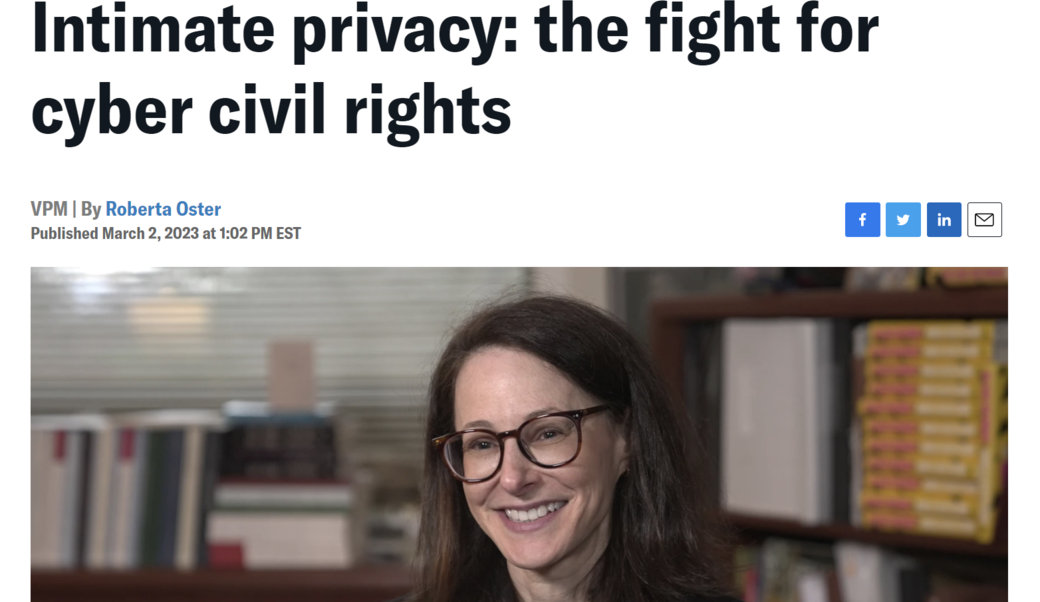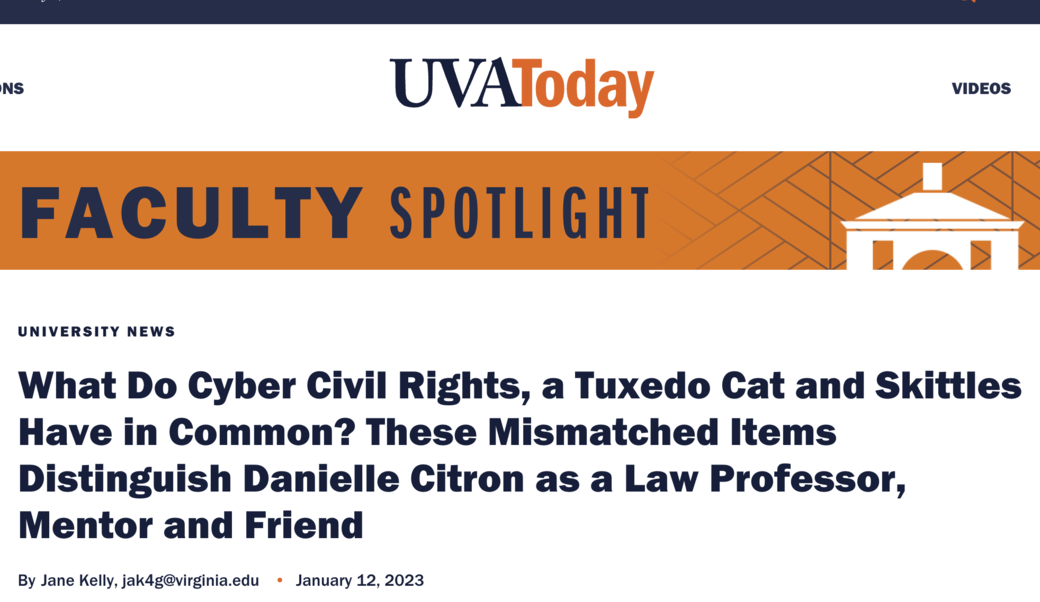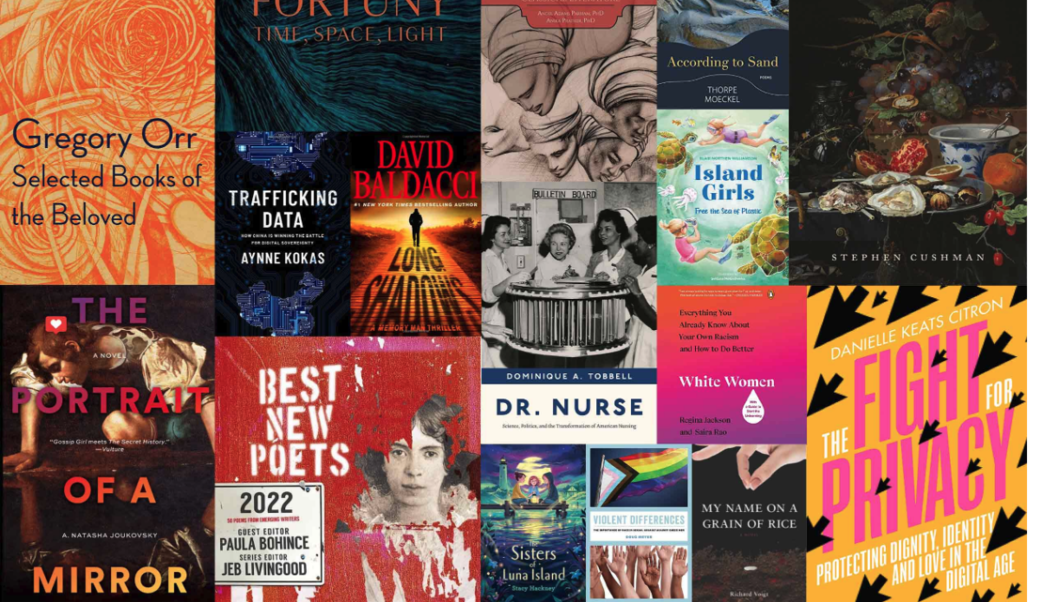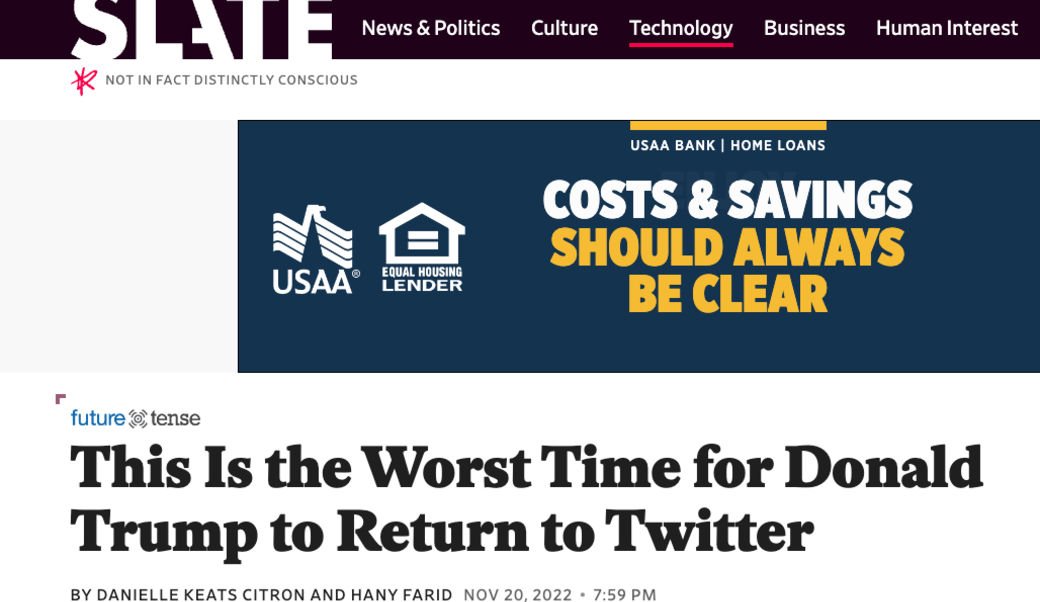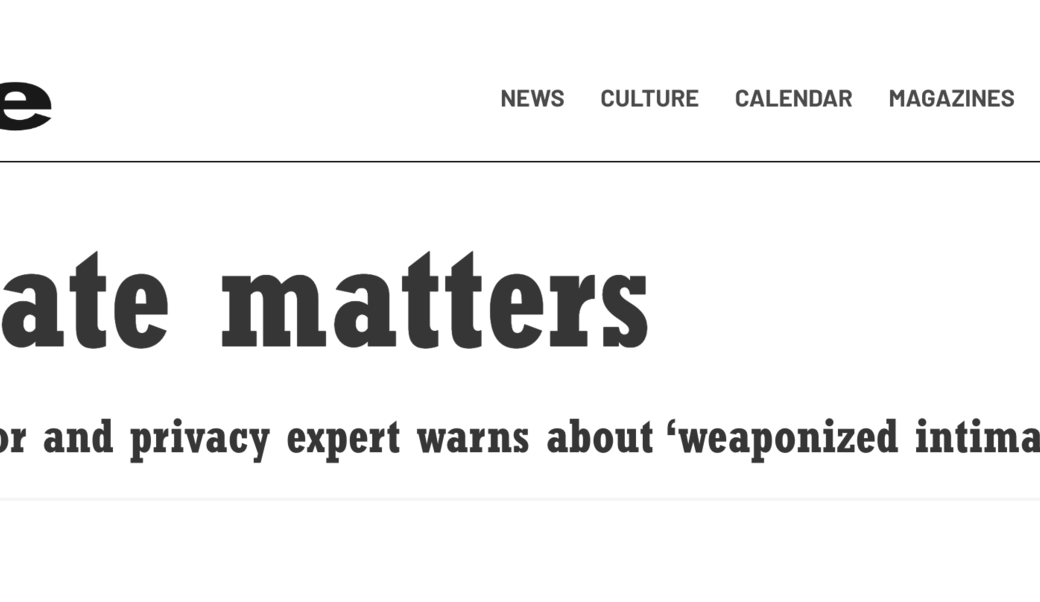Fast Facts
- Vice president, Cyber Civil Rights Initiative
- 2019 MacArthur Fellow based on her work on cyber stalking and sexual privacy
- Board member, Electronic Privacy Information Center
- Expertise on privacy, First Amendment, feminism and the law, civil rights
Areas Of Expertise
- Domestic Affairs
- Human Rights and Civil Rights
- Law and Justice
- Media and the Press
- Science and Technology
- Social Issues
Danielle K. Citron is the Jefferson Scholars Foundation Schenck Distinguished Professor in Law at the University of Virginia School of Law and vice president of the Cyber Civil Rights Initiative. Citron was named a MacArthur Fellow in 2019 based on her work on cyber stalking and sexual privacy and was named a member of the Academy of Arts and Sciences in 2023.
Her book Hate Crimes in Cyberspace (Harvard University Press) was named one of the “20 Best Moments for Women in 2014” by Cosmopolitan magazine. Her latest book, The Fight for Privacy: Protecting Dignity, Identity, and Love in the Digital Age (W.W. Norton), was named one of Amazon’s Top 100 books of 2023. She has published more than 50 law review articles in outlets including Yale Law Journal, California Law Review, Michigan Law Review, Stanford Law Review, Texas Law Review, Notre Dame Law Review, Southern California Law Review, Boston University Law Review, Emory Law Journal, Fordham Law Review, Minnesota Law Review, Florida Law Review, and Washington University Law Review. Her opinion pieces have appeared in The New York Times, The Atlantic, Slate, Lawfare, CNN, and the Guardian.
Citron previously taught at the Boston University School of Law, and for 15 years at the University of Maryland School of Law. She is an affiliate scholar at the Stanford Center on Internet and Society, Yale Information Society Project, and NYU’s Policing Project. She served as chair of the board of directors of the Electronic Privacy Information Center and now sits on its board. She serves on the board of directors of the Future of Privacy think tank and on the advisory boards of ADL’s Center for Technology and Society and Teach Privacy. She works closely with Spotify and TikTok as well as federal and state lawmakers on issues of online safety, privacy, and free speech.
